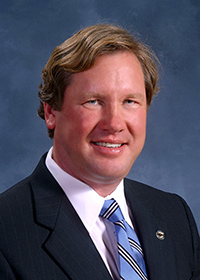A struggling rural hospital in east-central Georgia hopes to gain firmer financial footing through a new partnership with University Health Care System in Augusta.
University Health Care will manage Washington County Regional Medical Center in Sandersville beginning Jan. 1, under an agreement announced Monday.
Such rural hospitals and their survival have been a focus for political leaders in Georgia after the closure of four of these facilities in the past two years.
Jimmy Lewis of HomeTown Health, an organization of rural hospitals in Georgia, said recently that besides the four closures, 15 more facilities are “financially fragile.” Six of those, he said, “could go tomorrow due to low cash.”
Those financial pressures led Gov. Nathan Deal to appoint a Rural Hospital Stabilization Committee, which last week concluded its hearings with a public comment period.
Earlier this year, Washington County Regional Medical Center discontinued non-emergency baby deliveries because of financial losses, joining the more than 40 hospitals in rural areas in Georgia that have given up deliveries due to costs.
Meanwhile, partnerships between large urban hospitals and rural hospitals have emerged as an option that some health care leaders have embraced.
This year, Macon-based Navicent Health struck an agreement to manage the struggling Putnam General Hospital in Eatonton, and forged a similar partnership with Milledgeville-based Oconee Regional Health Systems.
Under such relationships, the larger system typically receives referrals of patients who need super-specialized care. The smaller hospital can get help in supply purchasing, managerial expertise, and even financial help.
The Sandersville hospital is one of the largest employers in its county, with 300 staff members.
Jimmy Childre, CEO of Washington County Regional Medical Center, told GHN on Tuesday that the pact with University Health will help reduce the hospital’s fixed costs, expand clinical services and gain leverage on supply purchasing.
He said the medical center has lost money over the past two years, but that recently, its financial stability has improved.
“The business model of a standalone rural hospital is definitely threatened,’’ Childre said. “Some experts think the worst may be yet to come,” he added.
Childre said that the more rural hospitals close, “the more pressure it puts on other hospitals. Their ERs get backed up.”
He said that University Health is “very motivated to create a business model to support rural hospitals.”
James R. Davis, president and CEO of University Health Care System, said in a statement, “All hospitals continue to struggle with declining reimbursement, but smaller hospitals in more rural areas have been hit extremely hard and may not be equipped to navigate these rough waters.”
Davis added, “We can help by leveraging our scale with supplies, assisting with the business operations and working to better integrate the clinical staff. These things and more will help strengthen this hospital so it can continue to serve the community.”
Lewis, though, said that such management agreements “are at best a short-term fix.”
A hospital that’s struggling typically will still face a shortfall, Lewis said. That financial gap, he said, ‘’has to be funded, usually by the county.”
Gov. Deal’s rural hospital committee recently heard presentations about possible remedies for rural health care that include creating a more coordinated rural health system, and a Mississippi hospital’s decision to close its ER in favor of a clinic.
On Friday, the panel heard public comments that included organizations pushing for Medicaid expansion, which they said would extend coverage to at least 400,000 uninsured Georgians.
That would allow hospitals to get reimbursement for many uninsured patients’ hospital visits, said Laura Colbert of Georgians for a Healthy Future.
GHN recently reported that rural hospitals in Arkansas – a state that expanded Medicaid – have seen their finances improve under expansion.
Gov. Deal has ruled out expanding the Medicaid program in the state, saying it’s too costly. And the General Assembly earlier this year took the additional step of requiring legislative approval for a Medicaid expansion in Georgia.


